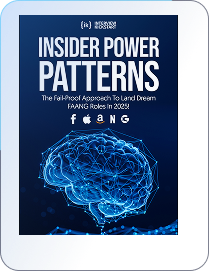Top tech companies set challenging Docker interview questions to assess your proficiency in building, deploying, and running applications. If you are applying for a Docker-specialized DevOps engineer position or a software developer position, be it a Java developer, a C++ developer, or a web developer coding in JavaScript, you will require expertise in Docker.
PayPal, Spotify, Uber, Netflix, and other Tier-1 tech companies use Docker to simplify the operations and make secure applications while bringing the infrastructure and security closer. Top companies receive thousands of applications for every software developer position. To outperform the competition, you must prepare strategically and cover all vital topics from the basic to the advanced level. The following top 30 Docker interview questions will help you uplevel your tech interview prep.
If you are a software engineer, software developer, engineering manager, or tech lead, check out our technical interview checklist, interview questions page, and salary negotiation e-book to get interview-ready!
Having trained over 11,000 software engineers, we know what it takes to crack the toughest tech interviews. Our alums consistently land offers from FAANG+ companies. The highest ever offer received by an IK alum is a whopping $1.267 Million!
At IK, you get the unique opportunity to learn from expert instructors who are hiring managers and tech leads at Google, Facebook, Apple, and other top Silicon Valley tech companies.
Want to nail your next tech interview? Sign up for our FREE Webinar.
Here’s what we’ll cover in this article:
To begin your tech interview prep, you must prepare the following common Docker technical interview questions and answers.
Docker is an open-source containerization technology that has gained widespread popularity in the application packaging and cloud environment. You can use Docker to automate the deployment of applications in lightweight, portable containers.
A container defines a standard unit of software bundled with dependencies. It helps in deploying applications fastly and reliably between different computing platforms.
You can imagine Docker as a big ship (Docker) carrying huge boxes of products or containers. A container in Docker doesn’t need the installation of a separate operating system; rather, it utilizes the kernel’s resources and its functionality to allocate them for the CPU and memory.
This is one of the important Docker interview questions. The primary features of Docker are as follows:
Interviewers often ask Docker interview questions on the limitations you might face as a developer. Some common drawbacks of Docker are:
You can use Docker images to create Docker containers. The build command helps create the Docker image, and every image is stored in the Docker registry.
Docker engine or daemon represents the server. You should run the docker engine and the clients on the same/ remote host, which can communicate through a command-line client binary and full RESTful API.
Docker has two types of registry:
Memory-swap in Docker refers to a modified flag that holds meaning only if- memory is also set. Swap enables the container to write express memory requirements to disk if the container ends up exhausting all the available RAM.
A Docker swarm is used to convert a group of Docker hosts into a single, virtual Docker host. It offers a program interface to the standard docker application.
You can use the combination of Rest API, socket.IO, and TCP to communicate between the Docker client and Docker Daemon.
You must also practice the following basic Docker interview questions:
If you are applying for senior positions, here are some interview questions on Docker for experienced individuals.
This is an important Docker interview question, and the interviewer can ask you questions on each of these commands specifically. The commonly used commands are as follows:

â€
The interviewers put up such Docker interview questions to indirectly gauge your understanding of the differences between virtual machines and Docker containers.

This is one of the most important Docker interview questions. You can implement CI-CD in Docker in the following ways:
CNM is the abbreviation for Container Networking Model. It is a standard from Docker, Inc. It forms the basis of container networking, and this approach provides container networking with support for multiple network drivers.
This is one of the essential Docker interview questions. The docker container lifecycle includes all the stages from its creation to its end. The crucial stages are:
This is one of the frequently asked Docker interview questions. Docker supports logging at two levels – Daemon and Container levels.
1. Daemon level
It is a kind of logging that has four levels:
2. Container Level
The above Docker interview questions will help you nail the most challenging interview rounds. You must practice these and learn the best strategies for effectively answering interview questions from mock interviews.
You should be thorough on the topics related to network, containers, security, TLS, Kafka, event-oriented architecture, and microservices, in addition to basic and advanced Docker concepts to nail Docker interview questions.
As a software engineer, you will have a few coding challenges for the interview. You must practice the various types of coding problems to ace these coding interview rounds. You should practice the most anticipated Docker interview questions to get well-versed in technical concepts related to Docker and behavioral questions (using the STAR method).
You should be adept at backend technologies like Java, Python, Node.js, Go, or C#/.NET to nail Docker interview questions.
Kubernetes is another useful container and orchestration technology that top tech companies value. Your knowledge of Kubernetes, in addition to Docker, can give you an upper hand in the interview process amongst other competitors.
A senior software developer at Docker earns between $80k to $159k per year. The average salary is $114,480 annually (Source: payscale.com).
If you want to get started with your interview prep and wish to give it your best shot, register for Interview Kickstart’s FREE webinar to understand the best way to prepare for tech interviews at the biggest companies.
IK is the gold standard in tech interview prep. Our programs include a comprehensive curriculum, unmatched teaching methods, FAANG+ instructors, and career coaching to help you nail your next tech interview.
We’ve trained thousands of engineers to land dream offers at the biggest companies, including Google, Facebook, Amazon, Apple, Microsoft, and Netflix, among others.
Sign up now to uplevel your career!
â€
Attend our free webinar to amp up your career and get the salary you deserve.

693+ FAANG insiders created a system so you don’t have to guess anymore!

100% Free — No credit card needed.

Time Zone:






Get your enrollment process started by registering for a Pre-enrollment Webinar with one of our Founders.

The 11 Neural “Power Patterns” For Solving Any FAANG Interview Problem 12.5X Faster Than 99.8% OF Applicants
The 2 “Magic Questions” That Reveal Whether You’re Good Enough To Receive A Lucrative Big Tech Offer
The “Instant Income Multiplier” That 2-3X’s Your Current Tech Salary

The 11 Neural “Power Patterns” For Solving Any FAANG Interview Problem 12.5X Faster Than 99.8% OF Applicants
The 2 “Magic Questions” That Reveal Whether You’re Good Enough To Receive A Lucrative Big Tech Offer
The “Instant Income Multiplier” That 2-3X’s Your Current Tech Salary
Just drop your name and email so we can send your Power Patterns PDF straight to your inbox. No Spam!
By sharing your contact details, you agree to our privacy policy.
Time Zone: Asia/Dhaka

We’ve sent the Power Patterns PDF to your inbox — it should arrive in the next 30 seconds.
📩 Can’t find it? Check your promotions or spam folder — and mark us as safe so you don’t miss future insights.
We’re hosting a private session where FAANG insiders walk through how they actually use these Power Patterns to crack interviews — and what sets top performers apart.
🎯 If you liked the PDF, you’ll love what we’re sharing next.
Time Zone:

